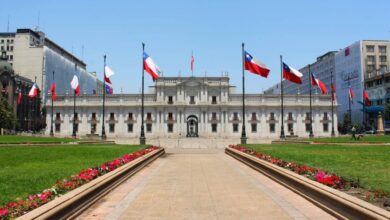Lula da Silva: A Left-Wing South America Can Increase Cooperation
The president of the Congress in Colombia, Roy Barreras, insisted on one of the dreams of integrationists: a single Latin American currency. What other proposals for integration can come about with the most recent victory of Lula da Silva?

Photo: TW-LulaOfficial
LatinAmerican Post | Santiago Gómez Hernández
Listen to this article
Leer en español: Lula da Silva: Una Sudamérica de izquierda puede aumentar la cooperación
With the victory in the presidential elections in Brazil of Luiz Inacio Lula da Silva, South America and Latin America is almost completely socialist. Movements close to the left govern today in Colombia, Brazil, Argentina, Peru, Chile, Bolivia, and Venezuela. Additionally, Mexico, Nicaragua, Honduras, and Cuba also frame the socialist turn of the region. Faced with a scenario in which today the majority of leaders are ideologically close, Latin America (or at least South America) can initiate integration processes that were long forgotten.
Recently, the president of the Colombian Congress, Roy Barreras, resumed one of the greatest integration dreams: a single South American currency, similar to the Euro in the European community. The intention is not new, and proposals of integration have consistently failed, with few exceptions. But now, with a more homogeneous South America, it is possible to dream of greater integration, which will surely have much more socialist ideals than other political groups.
The Single Currency
As is clear, one of the biggest dreams for a large liberal and progressive sector in the region is to generate a single currency for the area. This proposal intends to replace the Colombian, Chilean or Argentine pesos, the Bolivians or the bolívares, the soles, the guaraníes and the reles, etc. for a single coin. The intention is that this currency is much stronger than each one separately. This would facilitate trade and tourism between each of the countries and would also be much stronger when trading with it relative to foreign currencies such as the US dollar, Euro or British pound.
Also read: Lula da Silva Won, But Also Bolsonaro?
However, it also has factors that many fear or prefer to avoid. For example, just as the member countries of the Euro zone have done, in order to adopt a single currency, each nation must give up a portion of its fiscal and monetary sovereignty. The times in which a president orders to print more banknotes as a method for greater liquidity should be left behind. Otherwise, economic collapses (traditional in the region, such as in Venezuela and Argentina) would drag down all the other countries.
A possible alternative is that countries with similar economic policies achieve these agreements and gradually implement the single currency.
Free People Mobility
Another important characteristic of the European Union that has been replicated in the region is the free mobility of people. In Europe, any European citizen can move to another country in the community and apply for employment like local citizens. In Latin America, the closest thing that exists are: “Agreement on Residence for Nationals of the States Parties to MERCOSUR” and the “Agreement on Residence for Nationals of the States Parties to MERCOSUR, Bolivia, and Chile”.
In this way, it is possible to apply for legal residence in a member country. However, in the European Union, it is not necessary to request permits from the consulate. Simply, certain requirements must be followed, such as registration in the city and payment of taxes.
In Latin America, due to the constant migratory waves, it is difficult to think of an agreement where the borders are opened. Destination countries such as Chile, Uruguay, Ecuador, or Brazil have not shown an interest in attracting large amounts of labor and labor from Colombia or Venezuela. However, with governments that are ideologically close between Brazil, Colombia, Chile, Venezuela and Argentina, greater cooperation is possible.
Precisely, Nicolás Maduro himself, president of Venezuela, confirmed on his Twitter account that he had a “good conversation” with Lula and announced that they will resume “the binational cooperation agenda." “President Luiz Inácio Lula da Silva sent his greetings and commitment to all the Venezuelan people. We are willing to work hard to strengthen Latin America and the Caribbean, and for the economic and social development of our peoples,” the president said in another message on the social network.
Environmental Protection
Another important element of cooperation that will surely be on the agenda of the South American governments will be environmental protection and the fight against climate change. Not for nothing, in this area is the so-called "lung of the world": the Amazon jungle. This forest of gigantic importance for the environment and global biodiversity is the responsibility of the governments of the region. Gustavo Petro, Lula da Silva, Pedro Castillo, Nicolás Maduro, Luis Arce and Guillermo Lasso are in charge of protecting the ecosystem treasure.




